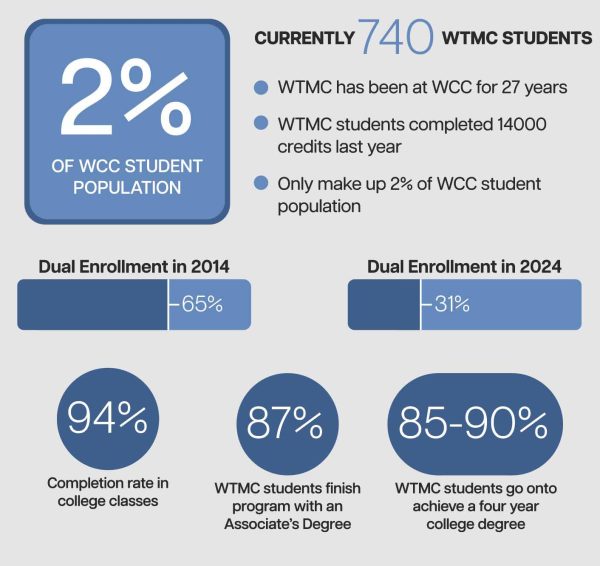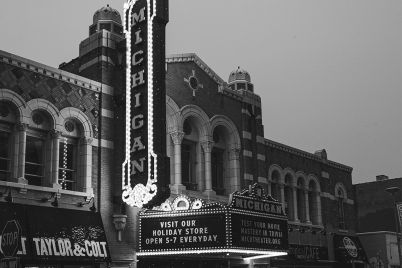Caleb Henderson
Editor

Statistics provided by WTMC Dean of Student Karl Covert. | Grace Faver | Washtenaw Voice
A couple weeks ago, a new directive was put in place barring access from the Student Center’s quiet room from WTMC students until at least the end of their school year in June.
This was a major change to the campus’ peak lunch hours from 11 a.m. to 1 p.m. The quiet room, typically a vibrant, cozy alternative for students to study that was generally full of students before the sanctions now sees much less traffic, and much less noise as a result.
Chief of Public Safety John L. Leacher confirmed that noise complaints taking place roughly “once a week” were the main catalyst for the change.
“What we responded to several times throughout the course of this last semester was students in that quiet area just being loud and rough-housing,” Leacher said.
While WTMC administrators repeatedly tried to work with their students in an effort to emphasize the importance of being quiet in the space throughout the course of the semester according to Leacher, the decision was eventually made to implement a ban on the space until further notice.
WTMC student Alexander Wood said he understood the ban, saying that students should not be “goofing off” in places they shouldn’t be.
Why did WTMC students congregate in quiet room?
One of the biggest contributing factors that also led to the verdict would be the high concentration of WTMC students in the Student Center during typical lunch hours.
With roughly 740 students currently enrolled in the middle college program during the winter semester, while only making up 2% of the total student population at WCC—all WTMC students share the same lunch period, making the Student Center feel that much more cramped.
In the works is a new plan to split WTMC’s lunch periods into two separate entries in the fall, but the middle college’s dean of students, Karl Covert, doesn’t believe this will solve the real culprit behind why the noise level in the quiet room had gotten out of control.
“One of the things that happened during COVID was that a lot of the seating areas where kids could eat lunch around campus—-those eating areas that were here prior to COVID never came back,” said Covert.
Covert also emphasized that WTMC did not have as many issues at lunch prior to COVID due to this fact.
“There used to be small carts where students could buy sandwiches or coffee in other parts of the campus, and those don’t exist anymore. So if you need to get something to eat, you have to come to the Student Center,” he said.
What’s next for WTMC?
A common misconception regarding the middle college program is that most, if not all dual enrollment students belong to the program—but according to Covert, that’s not the case.
“A lot of times people see students they perceive to be high school students, and they think they’re WTMC students. But in fact, they’re not WTMC students, they’re from other area high schools,” he said.
According to Covert, WCC has agreements with numerous other high schools in the area to dual enroll on campus; and while 10 years ago WTMC students made up roughly 65% of dual enrolled students, they only make up about 31% now.
Despite WTMC’s student body size being relatively stable over the past six to seven years, their academic achievements continue to rise year over year.
“Over the last four to five years, [WTMC students] have completed over 10% of the degrees that are conferred on campus,” said Covert.
Currently in his 15th year serving as the Dean of Students, Covert has overseen the growth of the program from under 400 students when he first began in 2009 to a population of 700+ pupils today—-many of those being first generation college students.
“That’s the real mission of the school—-the ability of us to take kids that traditionally in our society wouldn’t have an opportunity and give them wrap-around services so they can be successful,” he said.


